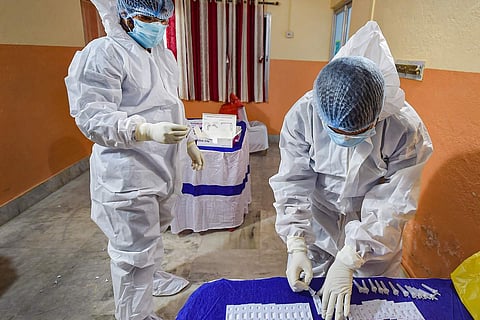

The initial findings into an 'adverse event' allegedly suffered by a COVID-19 vaccine trial participant in Chennai did not necessitate halting the trials, the Union government said on Tuesday. Rajesh Bhushan, Secretary, Ministry of Health and Family Welfare said that the incident would not affect the timeline of the COVID-19 vaccine’s release in any manner. Bhushan said he did not want to comment on the specifics of the case but added that most of the discourse on adverse events in the media had ‘inadequate’ information and facts. "Whenever a clinical trial starts the subjects are required to sign a prior informed consent form. This is a global practice which happens across countries," he said.
"Secondly, these trials of vaccines or medicines are multi site and multi centric. They are conducted in multiple hospitals and multiple states. And at each site, there is an institutional ethics committee which is independent of the vaccine manufacturer or the government," Bhushan said.
The statement came after a 40-year-old man, who was a volunteer in the third phase of the 'Covishield' vaccine trial in Chennai, had alleged serious side effects, including a virtual neurological breakdown and impairment of cognitive functions. He had sought Rs 5 crore compensation in a legal notice to Serum Institute of India (SII) and others, besides seeking a halt to the trial. However, the SII on Sunday rejected the charges as "malicious and misconceived" and said it will seek damages in excess of Rs 100 crore.
“Adverse events do occur with drugs or vaccines or any other health intervention. It is the role of the regulator after collating all data, to ascertain or refute whether there is a causal link between the event and intervention,” Indian Council of Medical Research (ICMR) Director General Dr Balram Bhargava told the media. It is done purely on a scientific basis and the assessment is done with very objectively-based criteria and initial causality assessment findings did not necessitate stoppage of these trials, he added.
Bhargava added, “If we’re able to vaccinate a critical mass of people and break virus transmission, then we may not have to vaccinate the entire population” At present, SII vaccine trials are in phase 3.